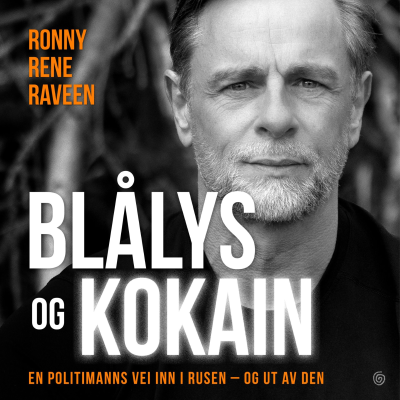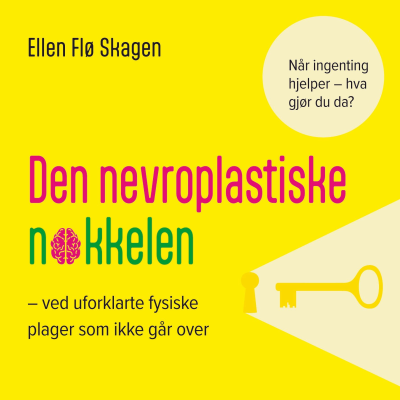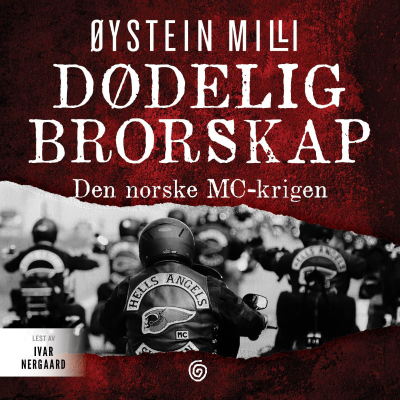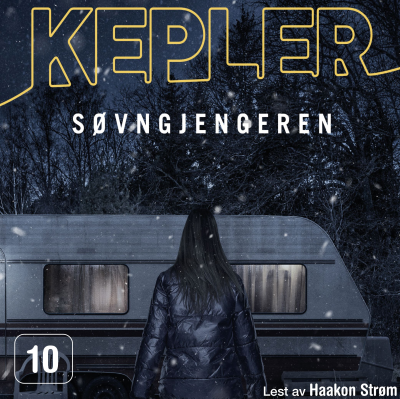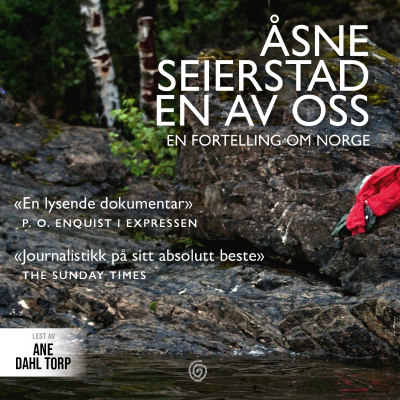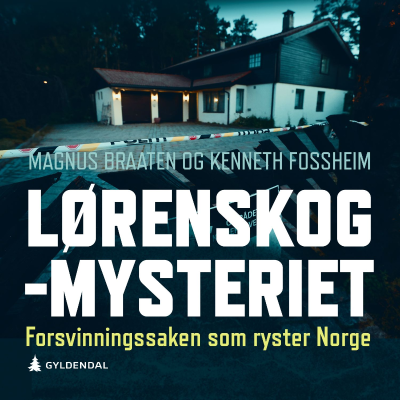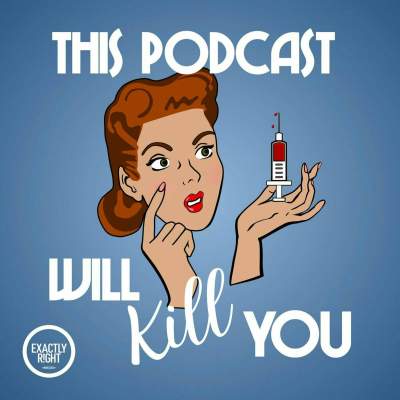
This Podcast Will Kill You
engelsk
Teknologi og vitenskap
Prøv gratis i 14 dager
99 kr / Måned etter prøveperioden.Avslutt når som helst.
- 20 timer lydbøker i måneden
- Eksklusive podkaster
- Gratis podkaster
Les mer This Podcast Will Kill You
This podcast might not actually kill you, but Erin Welsh and Erin Allmann Updyke cover so many things that can. In each episode, they tackle a different topic, teaching listeners about the biology, history, and epidemiology of a different disease or medical mystery. They do the scientific research, so you don’t have to. Since 2017, Erin and Erin have explored chronic and infectious diseases, medications, poisons, viruses, bacteria and scientific discoveries. They’ve researched public health subjects including plague, Zika, COVID-19, lupus, asbestos, endometriosis and more. Each episode is accompanied by a creative quarantini cocktail recipe and a non-alcoholic placeborita. Erin Welsh, Ph.D. is a co-host of the This Podcast Will Kill You. She is a disease ecologist and epidemiologist and works full-time as a science communicator through her work on the podcast. Erin Allmann Updyke, MD, Ph.D. is a co-host of This Podcast Will Kill You. She’s an epidemiologist and disease ecologist currently in the final stretch of her family medicine residency program. This Podcast Will Kill You is part of the Exactly Right podcast network that provides a platform for bold, creative voices to bring to life provocative, entertaining and relatable stories for audiences everywhere. The Exactly Right roster of podcasts covers a variety of topics including science, true crime, comedic interviews, news, pop culture and more. Podcasts on the network include My Favorite Murder with Karen Kilgariff and Georgia Hardstark, Buried Bones, That's Messed Up: An SVU Podcast and more.
Alle episoder
279 EpisoderEp 200 Poop Part 1: How the sausage gets made
It might be stinky and it might be unpleasant to behold, but we all do it. For many of us, our poop is out of sight, out of mind once we flush it away. But for the next hour and fifteen minutes or so, we’re going to bring it back into mind as we delve into the rich world of poop. This episode, the first of a two-part miniseries on poop, features a wide cast of characters all with some role in the production or management of poo, like our intestinal tract with its sphincters and microbiota, dung beetles that perform the duties so crucial for ecosystem function, and the sperm whale that produces a revered substance used in perfumes. We’re going behind the scenes to understand how the sausage really gets made (in a manner of speaking) and why we need a big perspective shift to stop seeing poop as waste and start seeing it as a resource. Correction: EW says that elephants poop 15 pounds a day, but in reality it’s more like 10x that - 150-200 pounds! Sorry for the mistake - we noticed it while listening through. Support this podcast by shopping our latest sponsor deals and promotions at this link: https://bit.ly/3WwtIAu [https://bit.ly/3WwtIAu] See omnystudio.com/listener [https://omnystudio.com/listener] for privacy information.
Special Episode: Nicola Twilley & Frostbite
For much of the world, refrigeration is such a commonplace technology that we rarely stop to wonder at the many ways it has transformed our lives. From the foods we grow to where we grow them, from how they taste to what we eat, refrigeration has dramatically - and quite recently - changed our relationship to food, our health, and the environment. As Nicola Twilley [https://www.nicolatwilley.com/] describes in Frostbite: How Refrigeration Changed our Food, Our Planet, and Ourselves [https://bookshop.org/a/3175/9780735223301], progress, as it so often does, comes at a cost. Twilley, who also cohosts the award-winning food podcast Gastropod [https://gastropod.com/], joins us in this week’s TPWKY book club episode to discuss the surprising history and tenuous future of refrigeration. You’ll never look at your fridge the same way again. Support this podcast by shopping our latest sponsor deals and promotions at this link: https://bit.ly/3WwtIAu [https://bit.ly/3WwtIAu] See omnystudio.com/listener [https://omnystudio.com/listener] for privacy information.
Ep 199 Sleep Part 2: Predictably unpredictable
Now that we know just how critical sleep is, we’re all making sure we get the amount we need, right? Unfortunately no. One-third to one-half of Americans are not getting enough sleep, according to public health guidelines. Why is that? Hypotheses abound, but many point the finger of blame at different aspects of modern society such as screen time, artificial light, a sedentary lifestyle. These narratives suggest that sleep in industrialized societies today is not just different but worse than in centuries past. Is that the truth? How did humans sleep in yesteryear, and what can that tell us about sleep today? In the conclusion to our sleep two-parter, we explore the many ways that humans sleep and the wide array of consequences when we don’t get enough (or too much) of it. Support this podcast by shopping our latest sponsor deals and promotions at this link: https://bit.ly/3WwtIAu [https://bit.ly/3WwtIAu] See omnystudio.com/listener [https://omnystudio.com/listener] for privacy information.
Ep 198 Sleep Part 1: Sleeping with one eye open
Sleep is a universal experience. It’s not just the lion that sleeps tonight - it’s also the butterfly, the chicken, the jellyfish, the dog, the snake, the worm, and of course the human. What is this widespread physiological process whose spell we are all under? What purpose (or purposes) does it serve? Why do we sleep the way we do? These are just some of the questions we’re going to get into in this week’s episode, the first half of our two-parter on sleep. We break down the different components of sleep in humans before diving deep into how animals sleep and what drives the different patterns we see. Night owl or daybird? Light sleeper or deep slumberer? Frequent naps or one big chunk? One eye open or both eyes closed? Tune in as we unravel some of the mysteries of sleep. Support this podcast by shopping our latest sponsor deals and promotions at this link: https://bit.ly/3WwtIAu [https://bit.ly/3WwtIAu] See omnystudio.com/listener [https://omnystudio.com/listener] for privacy information.
Special Episode: Daniel Stone & American Poison
The widespread use of leaded gasoline in the 20th century led to one of the world’s biggest public health and environmental disasters, the effects of which are still present today. Since its development in the 1920s, leaded gasoline has been linked to premature death, cognitive impairment, and behavioral issues in millions around the globe. How was such a toxic substance permitted to be sold, despite the tireless efforts of industrial medicine warriors like Alice Hamilton? In American Poison: A Deadly Invention and the Woman Who Battled for Environmental Justice [https://bookshop.org/p/books/american-poison-a-deadly-invention-and-the-woman-who-battled-for-environmental-justice-daniel-stone/dfd4f35a13bbe703?aid=3175&ean=9780593473627&listref=this-podcast-will-kill-you-book-club&next=t], award-winning author and historian Daniel Stone tells the story of leaded gasoline - its heroes, its villains, and the lessons we can learn. What will emerge as this generation’s leaded gasoline? PFAS? Microplastics? Something else entirely? History doesn’t have to repeat, but it will unless we heed the lessons of the past. Tune in for a fascinating episode! Support this podcast by shopping our latest sponsor deals and promotions at this link: https://bit.ly/3WwtIAu [https://bit.ly/3WwtIAu] See omnystudio.com/listener [https://omnystudio.com/listener] for privacy information.
Velg abonnementet ditt
Premium
20 timer lydbøker
Eksklusive podkaster
Gratis podkaster
Avslutt når som helst
Prøv gratis i 14 dager
Deretter 99 kr / måned
Premium Plus
100 timer lydbøker
Eksklusive podkaster
Gratis podkaster
Avslutt når som helst
Prøv gratis i 14 dager
Deretter 169 kr / måned
Prøv gratis i 14 dager. 99 kr / Måned etter prøveperioden. Avslutt når som helst.































